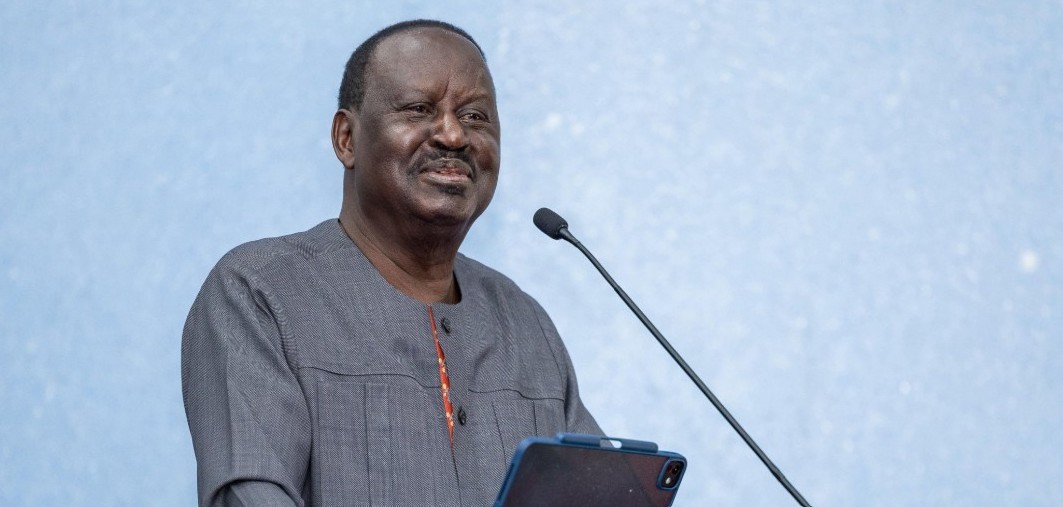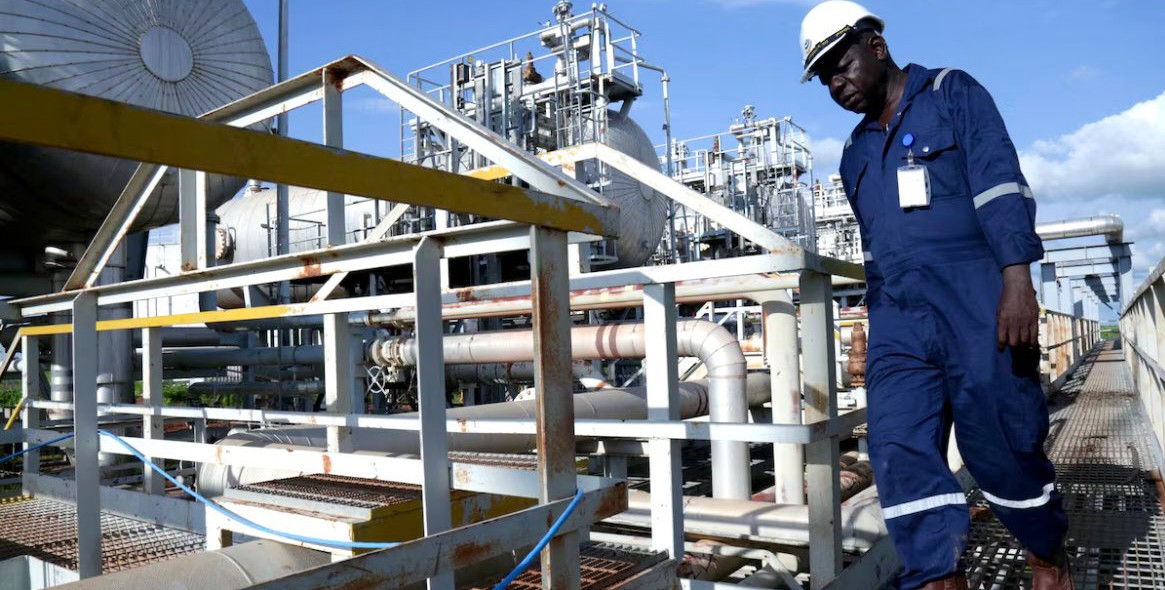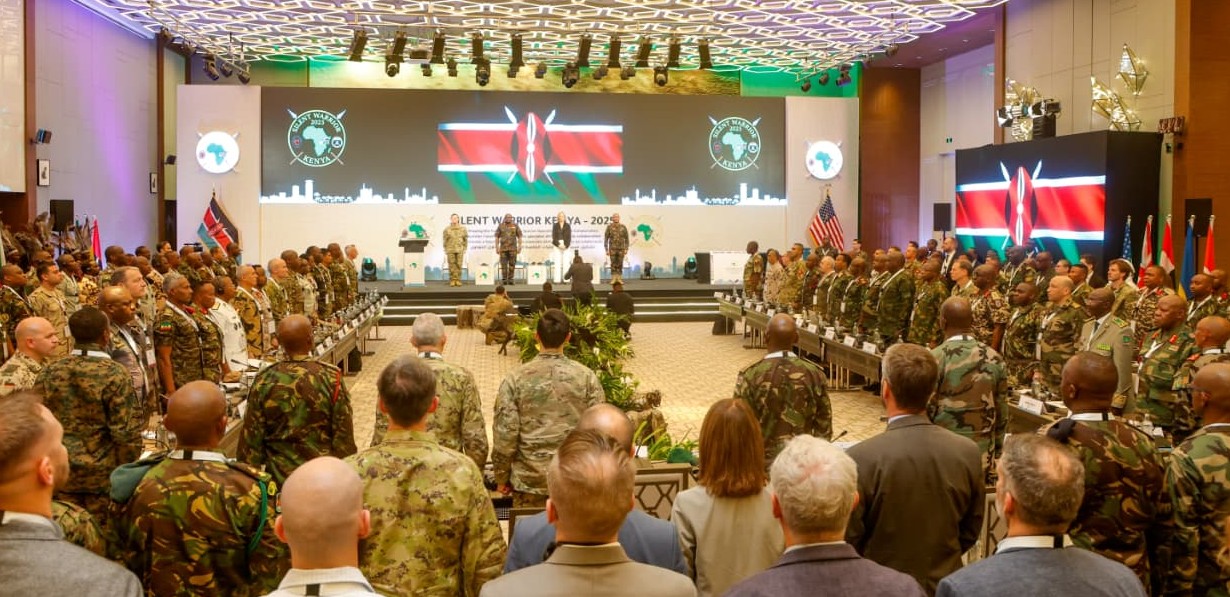Raila blames Gen Z protests on Ruto government’s failure to implement NADCO report

Odinga recalled that in 2023, Azimio la Umoja held protests over the 2022 general election results, the rising cost of living, and widespread corruption—the very same issues that Gen Z protesters are now demanding be addressed.
ODM leader Raila Odinga has criticised President William Ruto’s administration for failing to implement the recommendations of the National Dialogue Committee (NADCO) report, saying that this inaction triggered the recent Gen Z protests.
Speaking during an interview with NTV on Sunday evening, Odinga said the report contained proposals that could have addressed the frustrations of young Kenyans and helped prevent the nationwide demonstrations.
More To Read
- How Trump–Ruto health deal fills the void left after USAID exit
- UNAIDS hails Kenya–US health framework as major boost for HIV response
- Kenya, US sign Sh208 billion health cooperation deal to transform to strengthen primary care, services
- Full implementation of NADCO report puts UDA–ODM pre-election alliance under pressure
- Ruto backs IMF partnership as key to Kenya’s debt, economic reforms
- Tough decisions stabilised the economy, saved Kenya from shame – Ruto
“The Gen Z protests happened because the NADCO report wasn’t implemented. Had it been acted upon earlier, we would not have ended up where we did, because the issues raised by the youth were very similar to those we raised in 2023,” Odinga said.
He recalled that in 2023, Azimio la Umoja held protests over the 2022 general election results, the rising cost of living, and widespread corruption—the very same issues that Gen Z protesters are now demanding be addressed.
“We pressed for the server to be opened after we accessed it and found results that told a completely different story from what was announced by Mr Wafula Chebukati. We also spoke about the cost of living and corruption. Unfortunately, our protests were met with violence, and we lost about 70 people,” he said.
Mediation
Following international mediation, a task force led by Wiper Party leader Kalonzo Musyoka and majority leader Kimani Ichung’wah was formed, culminating in the NADCO report.
“We agreed that the NADCO report needed to be implemented. It was tabled in Parliament, faced delays, but eventually passed. However, before it could be implemented, Gen Z hit the streets in 2024,” Odinga noted.
He noted with concern that the Gen Z protesters went even further than Azimio, storming Parliament and the Judiciary, and attempting to breach State House.
“They overwhelmed the police, prompting the government to deploy the military without parliamentary approval, which was illegal. Parliament was coerced to retroactively approve the deployment. It was a dangerous moment for the country. We were on the brink of military takeover,” he said.
Uhuru's call from US
Odinga also disclosed that during the peak of the crisis, former President Uhuru Kenyatta called him from the United States, urging him to engage President Ruto in dialogue to help prevent the country from descending into chaos.
“Uhuru told me, ‘Although I know you don’t want to talk to Ruto, for the sake of the country, you need to find a way.’ I had issued a statement urging the President to stop the brutality. Eventually, Ruto reached out to me,” he said.
In his meeting with Ruto, Odinga said he told the President: “These issues have come up because you did not implement the NADCO report.”
Rejected by Gen Z
Ruto later announced a national dialogue forum, which Gen Z rejected. According to Odinga, Gen Z felt the proposals were unnecessary, insisting the government knew what it needed to do.
“When Ruto said he would dissolve the Cabinet and not sign the Finance Bill, that deflated the protests. After that, he announced plans to form a consensus government. We said we did not want to join the government before a national conversation took place. Eventually, Ruto appointed half a Cabinet,” he said.
Odinga said internal consultations in Azimio led to a decision allowing non-Kenya Kwanza experts to join the government to help steady the country.
“At that point, the country was in a stalemate. Streets were inaccessible, and there was no functional government. We risked falling into anarchy like Somalia. That’s why the decision was taken to allow experts from our side to help,” he explained.
Broad-based government
Asked if ODM joining the government was the solution to the unimplemented NADCO report, Odinga responded: “No. What I’m saying is that the country was in crisis. It needed a functioning government to move forward.”
He clarified that ODM only formally joined a broad-based government after concluding negotiations leading to a 10-point agenda, which he said mirrored NADCO recommendations.
“There’s no difference. The 10-point agenda just spelt out the same contentious issues more clearly. We agreed to track their implementation. A task force has been formed and a report will be issued soon,” he said.
On compensating Gen Z protesters killed during the 2024 protests, Odinga said, “We have said compensation must happen. Soon, you’ll see action on this.”
Pressed on the absence of compensation funds in the 2025/26 national budget, Odinga said: “There’s always provision of contingencies in the budget. The contingency fund is available. Just hold your horses.”
Top Stories Today












































